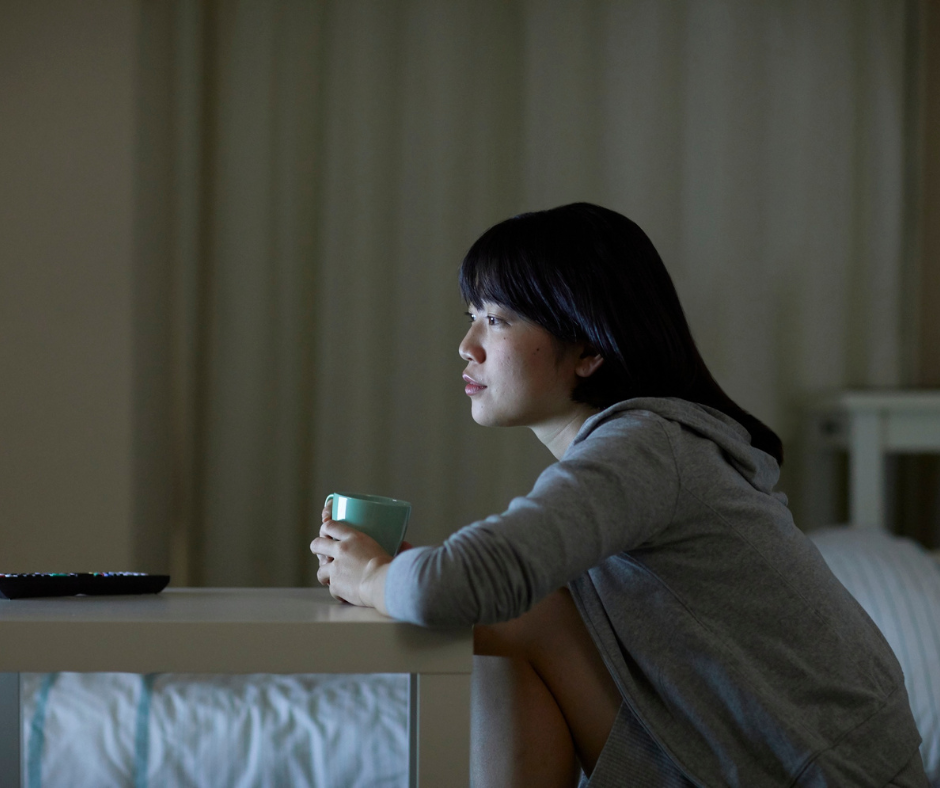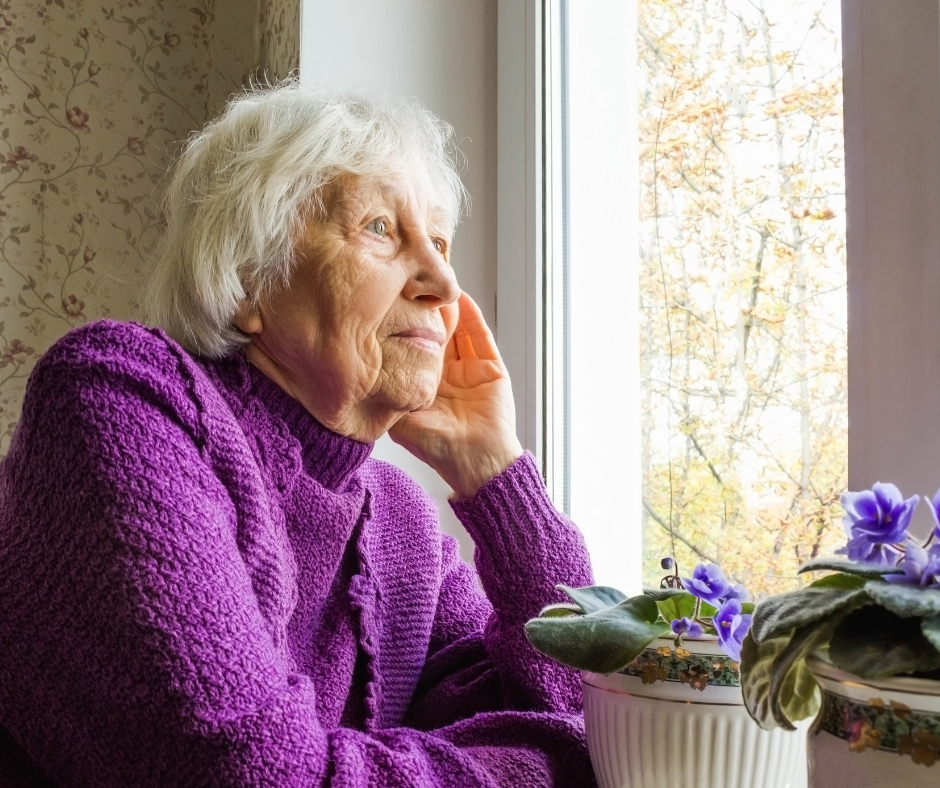The Weird Comfort of Rewatching the Same TV Shows on Bad Mental Health Days

You’re lying on the couch, overwhelmed, exhausted, or just… done. You open your streaming app, scroll past dozens of new releases, and click that show again—yes, the one you’ve seen a hundred times. Maybe it’s The Office, New Girl, Friends, or Grey’s Anatomy. Whatever it is, it’s familiar. You know every line, every twist. And in that moment, it feels like medicine.
This pattern isn’t lazy or silly. It’s actually a form of self-regulation. On bad mental health days, our brains crave what’s predictable and emotionally safe. Rewatching old shows taps into that need—and it can actually be a subtle way your nervous system is trying to care for itself.
Let’s explore why we do this, what it says about our inner world, and how to use this habit more intentionally.
The Neuroscience of Nostalgia and Predictability
Why Your Brain Finds Comfort in Rewatching the Same Shows When You're Not Okay

🧠 Your Brain Is Wired to Seek Safety, Not Surprise
When you're already overwhelmed, anxious, overstimulated, or low, your nervous system isn't in the mood for novelty. It’s not laziness or lack of imagination—it’s your brain doing its best to keep you safe.
Our brains are highly attuned to risk. Every new experience—whether it’s a new relationship, new environment, or even a new episode of a show—requires effort, attention, and emotional energy. This activates parts of the brain responsible for vigilance, such as the amygdala and prefrontal cortex, which work to scan for danger and predict outcomes.
But when you're already dysregulated? That extra energy isn’t always available. Your system is already overloaded. So instead, your brain seeks out the predictable.
🌀 The Default Mode Network: Your Brain's Safe Mode
Enter the default mode network (DMN)—a group of brain regions that become more active when you're resting, daydreaming, or reflecting on familiar things. Watching a show you've already seen allows this part of the brain to kick in.
- The DMN is associated with memory recall, emotional self-awareness, and autobiographical thinking.
- When activated, you may feel more grounded, introspective, or comforted—like you're revisiting an old version of yourself in a safe space.
- This network is quieted when we’re taking in new information or solving problems, but lights up when we let our minds drift into familiarity.
Think of rewatching a show as helping your brain enter “rest-and-digest” mode instead of “fight-or-flight.”

🔄 Predictability = Nervous System Regulation
When you know exactly what’s going to happen next in a TV show, your nervous system gets to relax. There's no suspense. No cliffhangers. No emotional whiplash.
This predictability is especially powerful for people with trauma histories or anxiety disorders. In a world that often feels chaotic or unsafe, rewatching a familiar show offers:
- Control: You know the ending. You know no one dies suddenly or betrays someone out of nowhere.
- Certainty: No new characters or overwhelming storylines to decode.
- Comfort: That one scene always makes you laugh. That one line always makes you feel seen.
- Connection: You’re not just watching a show—you’re reconnecting with the you who watched it the first time.
And when your emotional resources are depleted, that kind of psychological safety is a lifeline.

🧸 Nostalgia Is a Self-Soothing Tool
Nostalgia isn’t just cute or sentimental. It’s deeply regulating. Research shows that nostalgic experiences increase feelings of social connection, self-continuity, and hope.
Rewatching a show you loved in a more stable time can make you feel like you're returning to a safer version of yourself. Even if your life has changed, that show holds emotional time capsules—echoes of old joys, comforts, and familiar rhythms.
So when you cue up a 2010s sitcom or a childhood cartoon on a hard day, you're not just avoiding stress. You’re:
- Reminding yourself of who you’ve been
- Reconnecting to the rhythms that soothe you
- Giving your nervous system something it already knows how to handle
🎞️ Why This Isn't "Wasting Time"
You might hear that rewatching old shows is "lazy," "escapist," or even "a waste of time." But those criticisms don’t hold up when we look at the neuroscience and emotional context.
If you're using familiar shows to:
- Regulate your emotions
- Transition out of a spiral
- Prevent self-sabotaging behaviors
- Create a background sense of stability
...then this is intentional self-care, not avoidance.
There’s a difference between mindlessly zoning out and deliberately creating emotional shelter. The same show that helps one person dissociate might help another stay regulated. The key is to check in with how you're using the content—and how you feel afterward.

🛋️ What to Look for in a “Safe Show”
Not every show offers this kind of comfort. Some are emotionally demanding, socially complex, or full of plot twists. If you're curating your own comfort-viewing library, you might want to prioritize:
- Low-stakes emotional drama
- Familiar faces or nostalgic settings
- A soft tone or consistent rhythm
- Predictable story arcs
- Gentle humor or warmth
Examples might include:
- Parks and Recreation
- The Great British Bake Off
- Avatar: The Last Airbender
- Friends
- Gilmore Girls
- Sailor Moon
- Steven Universe
There’s no "right" show—only the ones that make you feel safe.

10 Subtle Signs You’re Rewatching Old Shows as a Mental Health Coping Tool (And Why That’s Totally Okay)
1. Predictability Is Emotionally Safe
When everything else feels chaotic or unpredictable, your favorite rewatch becomes a soft place to land. You already know what happens. There are no surprises, no risks, no plot twists that raise your heart rate.
- It lowers cognitive load because your brain isn’t working hard to follow new information.
- Familiar episodes bring a sense of control and certainty, even if life doesn’t.
- It soothes anxiety by removing ambiguity and expectation.
2. You’re Not Emotionally Responsible for the Characters
Watching new shows can be emotionally taxing. You’re investing in new characters, new drama, and unfamiliar emotional terrain. That’s too much on hard days. Rewatching lets you disengage slightly while still feeling connected.
- You already know the characters’ arcs, so you don’t have to worry about them.
- You can emotionally “coast” through episodes without attachment.
- You feel with the characters without the risk of emotional whiplash.

3. It Offers a Gentle Dose of Nostalgia
Rewatching a show often connects you to a different time in your life—maybe when things felt lighter or simpler. That emotional time travel can be grounding.
- It evokes memories of when you first watched it, which can bring comfort.
- It reconnects you to a version of yourself that maybe felt safer or more hopeful.
- Nostalgia triggers feel-good neurochemicals like dopamine and oxytocin.
4. It’s a Non-Verbal, Non-Social Way to Regulate
Sometimes we need comfort without conversation. Rewatching something familiar gives us background noise, structure, and companionship—without social demand.
- It mimics the presence of others, which can reduce loneliness.
- It offers structure to your day without requiring output.
- You can emotionally lean on the show without the energy cost of people.
5. It Helps You Reclaim Control Over Your Emotional State
When depression or anxiety is heavy, rewatching gives you a sense of agency. You’re choosing what goes into your mental space. That choice, however small, is powerful.
- You’re managing emotional exposure in a conscious way.
- You get to set the emotional tone of your environment.
- It lets you feel capable of doing something that helps—even if that something is just pressing “play.”

6. It Offers Micro Moments of Joy or Laughter
Even if you’re not fully engaged, you still get bursts of laughter, warmth, or connection. These micro-moments matter. They break through the fog.
- A single funny scene can shift your mood for an hour.
- It reawakens your emotional responsiveness gently.
- Joy in small doses is a form of nervous system repair.
7. It Becomes a Ritual of Safety
Humans find comfort in repetition. Rituals are grounding. They remind our bodies and minds what “safe” feels like. That’s what comfort TV can be.
- Watching the same show while wrapped in a blanket, in the same spot, becomes a ritual.
- Rituals signal to your brain: “We’re okay now.”
- They can ease transitions (like falling asleep) or create containers for emotion.
8. It’s a Form of Emotional Rehearsal
Rewatching lets you process feelings in a lower-stakes way. You rewatch the break-up episode. The grief arc. The friendship drama. It’s like emotional rehearsal, but with padding.
- You feel sadness safely, because you know the outcome.
- You can revisit past wounds through the lens of story.
- It allows slow emotional processing without overwhelm.

9. You're Practicing Self-Compassion Without Realizing It
Rewatching the same show might seem like avoidance, but it’s often a gentle act of self-compassion. It’s choosing what soothes you over what should entertain or stimulate you.
- You're honouring your emotional bandwidth.
- You're not forcing productivity or performance.
- You're listening to your body’s real needs, not society’s expectations.
10. It Can Signal a Need for Deeper Support
While rewatching can be helpful, if it’s the only tool you rely on for days or weeks, it may be a sign that something deeper needs attention.
- Notice if you’re using comfort TV to avoid all emotion or social connection.
- It might be time to talk to someone if rewatching is no longer soothing.
- When done in balance, comfort TV is support—not escape.
The Attachment Theory of Comfort TV
Our favorite rewatch shows often act like secure attachment figures. They’re always there. They don’t ghost. They don’t talk back. They show up predictably, offering the same emotional beats and comforting conclusions every time. That kind of consistency is rare in human relationships — especially if you’ve experienced relational trauma, chronic stress, or inconsistent caregiving.
The characters become emotionally reliable. You know Meredith Grey is going to survive another season. You know Moesha will figure it out. You know the jokes will land. This emotional “knowing” becomes a source of inner stability, especially when you’re feeling abandoned, activated, or lonely in real life. Comfort TV isn’t just passive consumption. It can act as emotional co-regulation when human support feels too far away.

It’s Not Laziness, It’s Conservation
One of the biggest myths about comfort TV is that it’s lazy or mindless. But in many ways, it’s your brain being efficient. When you’re emotionally depleted, your cognitive load is already stretched thin. Trying to engage with a new plot, keep up with characters you don’t know, or track complex storylines can be just too much.
Rewatching lowers that demand. It conserves energy and mental effort. Think of it like choosing soft food when your stomach is upset — you’re giving your system something gentle to digest. That’s not laziness. That’s survival. In fact, allowing yourself to rest in this way can make room for deeper emotional processing underneath the surface.
Choosing Comfort Doesn’t Mean You’re Avoiding Growth
It’s easy to feel guilty when you realize how many times you’ve rewatched the same show. Maybe you feel like you should be watching something new, reading a book, going for a walk, doing something “more productive.” But comfort and growth are not mutually exclusive. In fact, you often need one to access the other.
Rewatching gives your body and mind a sense of calm — and that calm is often the very thing you need to re-enter the world with more capacity. Choosing comfort on bad mental health days is not a sign of regression. It’s a sign of knowing what you need. And that’s a sign of growth all on its own.
It’s Okay to Let TV Be Tender
When the world feels loud, your inner world overwhelmed, and your brain too tired to process new things, let yourself rewatch your shows. Let the soft comfort of the familiar wrap around you like a favorite hoodie. Let your body breathe knowing what’s coming next.
It’s not weird. It’s not lazy. It’s your nervous system finding a safe place to rest.
And in a culture that’s always pushing for more productivity, stimulation, and “newness,” sometimes the most radical act of self-care is pressing play on Season 3, Episode 4—again.

So... Should You Feel Bad About Watching the Same Show for the 12th Time?

Not at all. In fact, it might be one of the most intuitive mental health tools you already use — without even realizing it.
Rewatching the same TV shows isn’t just a quirky habit. It’s a nervous system hack. It’s emotional self-preservation. And for many of us, it’s a quiet way of saying: I don’t have to handle something new today — I just need something that feels like home.
Here at KMA Therapy, we believe in meeting you where you are — even if where you are today is three episodes deep into a show you’ve already seen. If you're noticing that your comfort-watching habits are helping you cope — or if you’re wondering whether they’re replacing deeper needs — talking it through with a therapist can help you understand the why behind the what.
Our team of relatable, real-life therapists is here to support you through the big stuff, the small stuff, and even the Netflix stuff. 💻🧠
Book your first free 15 minute introductory call today!






